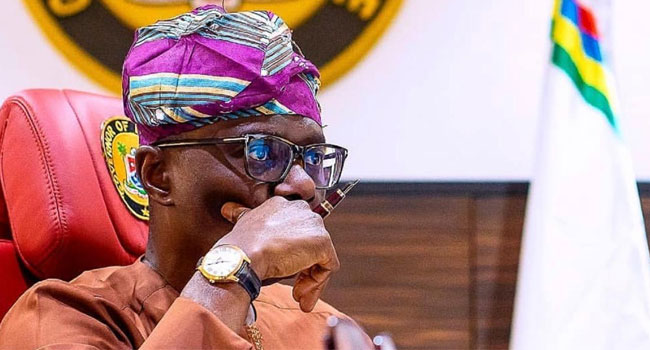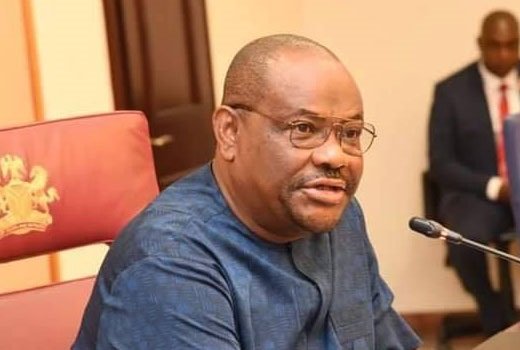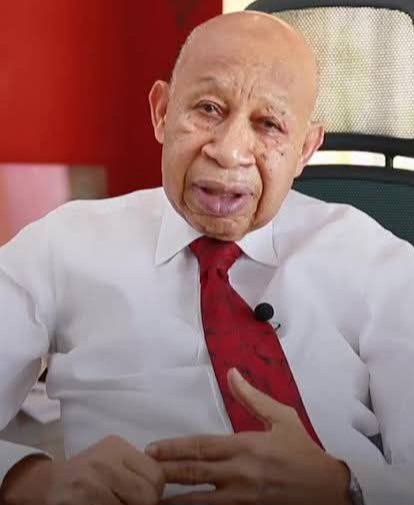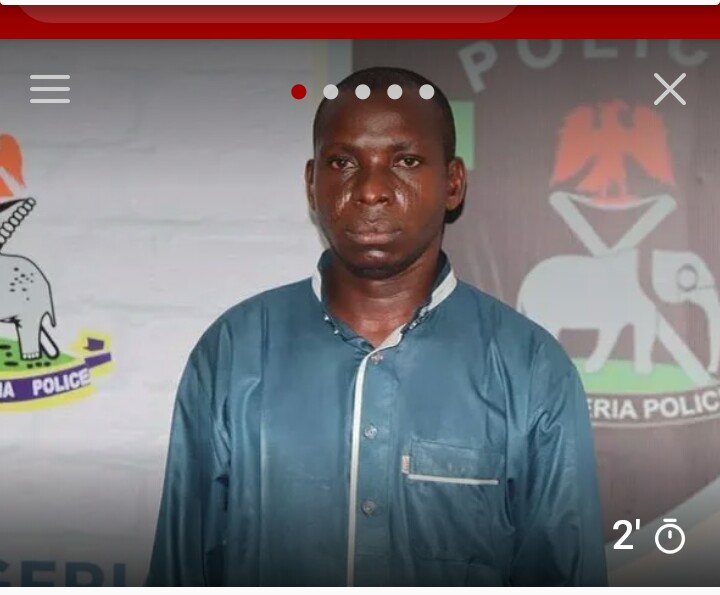World Bank: Tasking Govt On fiscal Prudence, Subsidy Removal

The World Bank sounded the alarm bells to Nigeria, saying further delay in removing the fuel subsidy, which had been described as a major drain and waste on the economy, could see the federal and state governments unable to pay salaries from 2022. COLLINS NWEZE writes on the multilateral institution’s position on fuel subsidy removal and what it means for fiscal prudence.
The World Bank has for years made serious inputs on how many global economies are run.
The multilateral institution advises government on fiscal prudence, revenue generation, exchange rate policies and debts.
One of the several issues that the bank has constantly followed up on Nigeria is removal of subsidy on petrol.
The Lead Economist, Nigeria Country office of the World Bank, Marco Antonio Hernandez, painted a gloomy picture of Nigeria if the country decides to continue with the controversial fuel subsidy, while unveiling the Nigeria Development Update (NDU), a bi-annual report of the multilateral institution, at an event that held in Abuja as well as virtual.
Also, the Group Managing Director of the Nigerian National Petroleum Corporation (NNPC), Mallam Mele Kyari, during a panel session at the event, lamented the huge burden the continuous retention of the subsidy on petrol had been to the corporation, warning that going forward, “the NNPC may have to start invoicing the federation to be able to maintain subsidy.”
This is just as the Minister of Finance, Budget and National Planning, Mrs. Zainab Ahmed, reiterated that the government was working on introducing measures that would cushion the impact of fuel subsidy removal on vulnerable Nigerians.
Speaking further, Hernandez, in the report, urged Nigeria to remove subsidy on petroleum motor spirit (PMS) in February 2022, as prescribed by the Petroleum Industry Act (PIA), warning that further delay could worsen the precarious revenue situation confronting the country.
The report also warned that the present fiscal condition of the sub-national governments would take a turn for the worse in 2022 with 35 of the 36 states unable to meet their financial obligations.
Hernandez stated that a situation where N250 billion goes into fuel subsidy monthly was unsustainable as the paucity of revenue confronts the country, especially the sub-national governments.
Hernandez who provided insights into the NDU report, titled “Time for Business Unusual,” stated that should the current revenue challenge continue till 2022, only Lagos State would be able to meet its financial obligations.
The report pointed to mounting fiscal pressures due to lower-than-expected revenues in 2021 and the rising cost of PMS subsidy.
It stated: “Because most states rely heavily on inter-governmental transfers, diminished revenue inflows to the Federation Account are jeopardising fiscal sustainability at the state level.
The report said lower revenues are likely to intensify pressure on states’ debt stocks and undermine their fiscal sustainability.
According to the report, in contrast to past periods of high oil prices, the Nigerian government has this time not been able to fully benefit from the oil boom because oil production has fallen below Nigeria’s estimated capacity and the Organisation of Petroleum Countries (OPEC) quota due in part to rising insecurity and the higher cost of the PMS subsidy.
It stated: “In 2022 the Federal Government plans to spend about N3,000 (US$7) per person for health, while the cost of the PMS subsidy for next year could reach N13,000 (US$32) per person. Not only is the PMS subsidy costly, but it mainly benefits richer households.
It stated that the insufficient supply of foreign exchange (FX) issues related to the predictability of exchange rate management, the unsustainable subsidy on premium motor spirit (PMS), burdensome trade restrictions, and the sizeable fiscal deficit financing by the Central Bank of Nigeria (CBN) are undermining the business environment, compounding underlying constraints on domestic revenue mobilisation, foreign investment, human capital development, and the delivery of public services.
“While the government took bold policy measures to mitigate the impacts of the COVID-19 crisis, the reform momentum has slowed which hinders Nigeria’s ability to reach its growth potential,” World Bank Country Director for Nigeria, Shubham Chaudhuri said.
The report prescribed policy options for Nigeria, including addressing fiscal pressures.
“Urgent priorities for the next three to six months include reducing inflation, improving exchange-rate management, mobilising additional oil and nonoil revenues, eliminating the PMS subsidy and redirecting expenditures towards targeted cash transfers and other priority investments, fostering competitive markets, and improving infrastructure.
In his contribution, Kyari, pointed out that while all over the world, subsidies are introduced to bring cost control and less pains to citizens, in Nigeria, fuel subsidy has become a major fiscal burden that must be eliminated.
The NNPC boss explained: “Today, we are evacuating about 60 million litres of gasoline from all the depots in the country. It is not national consumption and it is very understandable because of issues such as cross-border smuggling.
“As long as you have arbitrage, traders don’t see it as a crime, they just take advantage of that and exploit it. What we are dealing with is about N243 billion of fuel subsidy monthly. So, there is no magic around that.
Earlier, in her opening remarks, Mrs. Ahmed expressed optimism that recent developments in the oil sector, such as the Petroleum PIA 2021, the full reactivation of the four public refineries in the country, and the completion and coming on stream of the three private refineries under construction in 2022, would significantly boost contribution from the sector to economic growth.
According to her, subsidies’ regime in the sector remained unsustainable and economically disingenuous.
She disclosed that ahead of the target date of mid-2022 for the complete elimination of fuel subsidies, the government was working with its partners on measures to cushion potential negative impact of the removal of the subsidies on the most vulnerable at the bottom, which she estimated to be 40 per cent of the population.
“One of such measures would be to institute a monthly transport subsidy in the form of cash transfer of N5,000 to between 30 and 40 million deserving Nigerians.
“As a government, we remain committed to our broad objectives of stimulating broad-based growth through diversification and the active participation of the private sector to ensure that our growth is inclusive.
“We will continue to prioritise investment in critical infrastructure needed to unlock production and supply constraints, to create adequate productive employment and preserve jobs, and to ensure macroeconomic stability and promote poverty reduction and equity.
“I agree with the Report that with the expansion of social protection policies during the pandemic, the government has an opportunity to phase out subsidies such as the PMS subsidy while utilising cash transfers to safeguard the welfare of poor and middle-class households.
“Towards this end, we intend to accelerate our structural reforms, particularly in the power sector, in governance, in business environment to unlock the huge potentials of the economy, scale up social safety net and deepen financial inclusion to reduce poverty and inequality gaps.We will carefully calibrate the sequencing of these reforms to manage their attendant political fallouts,” she added.
Ahmed pointed out that digital revolution was looming in Nigeria and waiting to happen spontaneously.
“I agree that Nigeria’s digital economy can transform economic activities by unleashing new productivity gains, offering new services, and improving the government’s efficiency. We see enormous opportunity for our teeming youth population in this sector which has largely remained unharnessed with isolated progress and possibilities.
“We need greater investments in newer and competitive technologies to be made for the provision of critical infrastructure in the telecoms sector to unleash potentials.
“To protect such investments, government has been mobilising national security outfits, and even local ‘vigilantes’ to provide added layers of security for the infrastructure, while at the same time engaging local communities towards addressing the likely root causes of cases of infrastructure vandalisation,” she added.
Just last week, the International Monetary Fund (IMF) Article IV Staff Mission advised the President Muhammadu Buhari administration to completely discard fuel and electricity subsidies.
Financial analyst, Johnson Chukwu, said the IMF advice on subsidy removal on petrol was imperative because the subsidy regime was unsustainable.
Chukwu, who is also the Chief Executive Officer of Cowry Assets Management Ltd., said the Federal Government could not continue to vote and pay over two trillion naira as electricity and petrol subsidies.
“The current payment is benefitting only the privileged class and not the majority of the people, who are at the lower rungs of society.
“The subsidy should be removed and the funds earmarked to the productive sectors of the economy that will spur growth,” Chukwu said.
He also said that the removal would enable sectors such as education, health care, and critical infrastructure to have more investments.
Chukwu added the Federal Government must sensitise Nigerians to the importance of the total removal of subsidy on the economy.
“Government should continue to educate the people to reduce the social unrest associated with total removal of subsidy payment as the payment is not in the best interest of the masses but subsidising consumptions at the expense of other competing needs of our society,” he said.
Professor Emeritus of Petroleum Economics, Louisiana State University (LSU) Energy Studies, United States, Wumi Iledare, recently said the Federal Government cannot afford to not deregulate otherwise, Nigeria may end up like Venezuela and perhaps eventually like Yugoslavia.
He said that subsidising petroleum product has decimated the Nigerian economy for decades, hence now is that time to stop the practice for posterity sake
“Listen there is nowhere in West Africa where the price of petrol is less than N200 per litre. It is almost N450 per litre in Ghana at the current exchange rate. Neither is there anywhere in West Africa with Nigeria’s artificial lifestyle. But nearly everywhere in West Africa has organised electricity delivery system and sustained educational structure. I think the labour unions are living in the memory of the past and compromising a sustainable future in the process,” he said.
For Iledare, asking the government to subsidise forex and petrol at the same time is asking the government to commit suicide.
In his presentation at Nairametrics Economic Roundtable, Chief Economist, PwC, Andrew Nevin, said the exchange rate, fuel subsidy, and power sector need total structural and policy reforms due to distortions in the sector.
On fuel subsidy, he said the Petroleum Products Pricing Regulatory Agency (PPPRA), Nigeria spent about N10 trillion on fuel subsidy between 2006 and 2018 hence the need to have a rethink on sustaining the subsidy regime.
Subsidy reform can be a tough sell as it often involves raising the prices of goods, such as petrol, electricity or food, which immediately hits consumers’ pocketbooks.
For years, Federal Government’s attempts to scale back harmful petrol subsidies have been reversed under pressure from interest groups and the public, making the government absorb avoidable costs.
Still, in many countries, subsidies could be a temporary policy tool to correct market imperfections- that is, when competitive, private markets fail to deliver socially desirable outcomes.
But that is not the case with Nigeria, which has for years, enjoyed subsidies on petrol despite having one of the lowest revenue levels as a share of Gross Domestic Product (GDP) worldwide.
With crude oil prices now at $84 per barrel and its implication on the petrol price in the country has once more triggered discussion on petrol subsidy removal in Nigeria.







